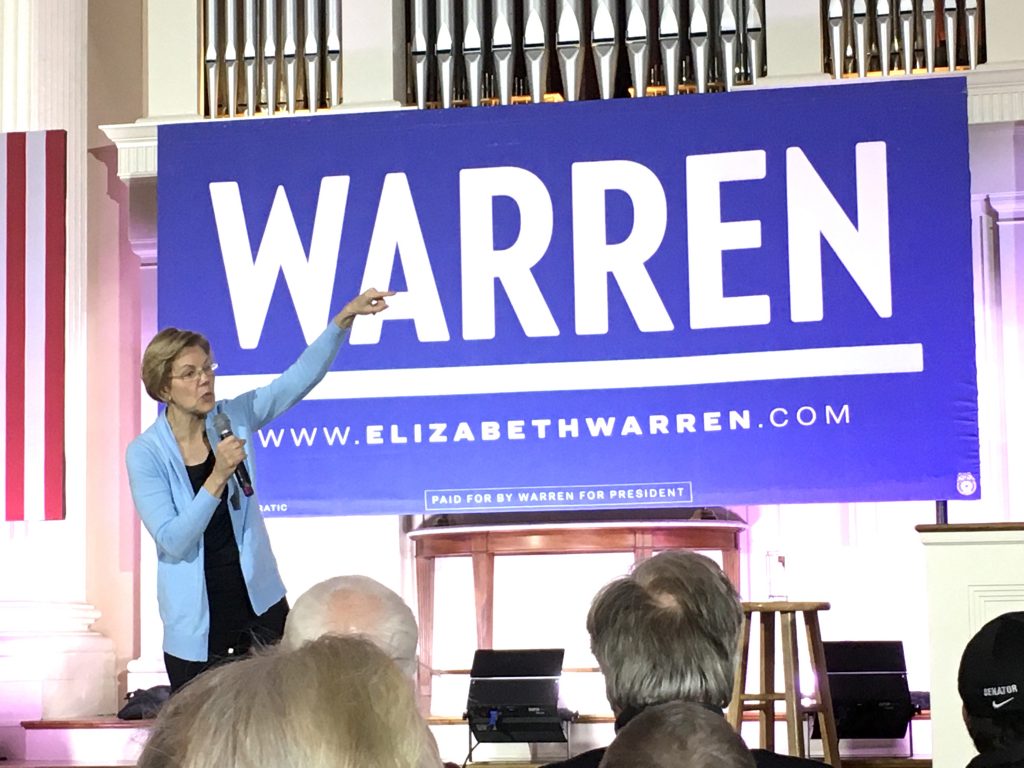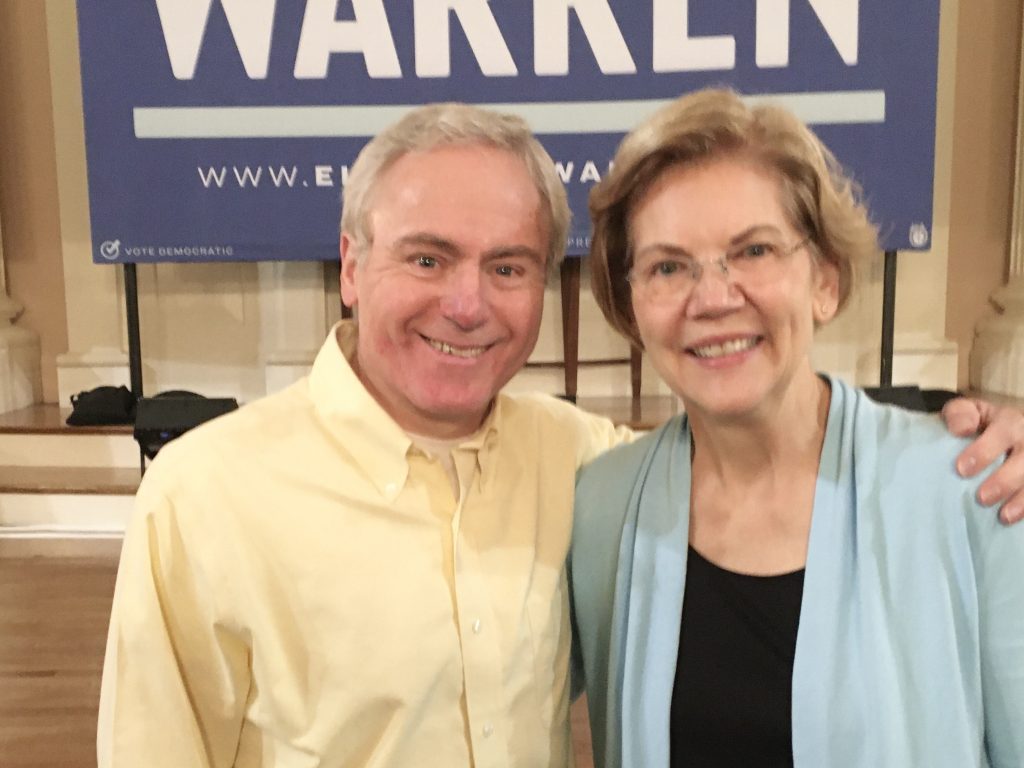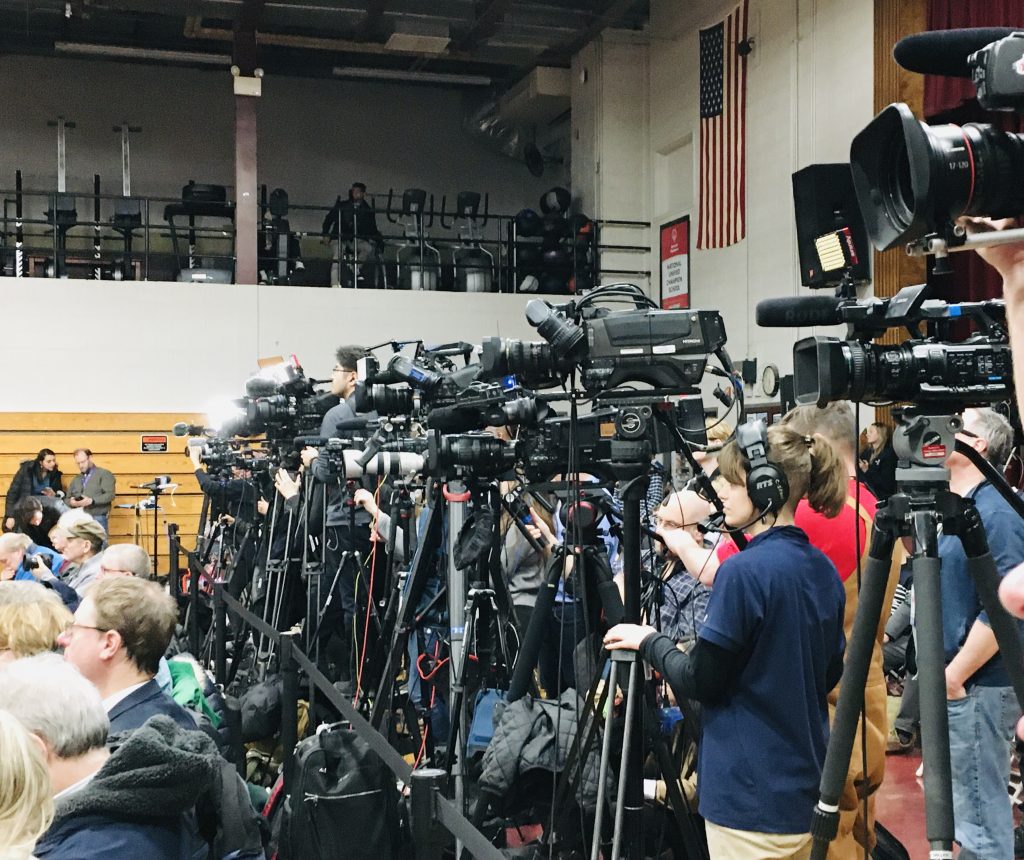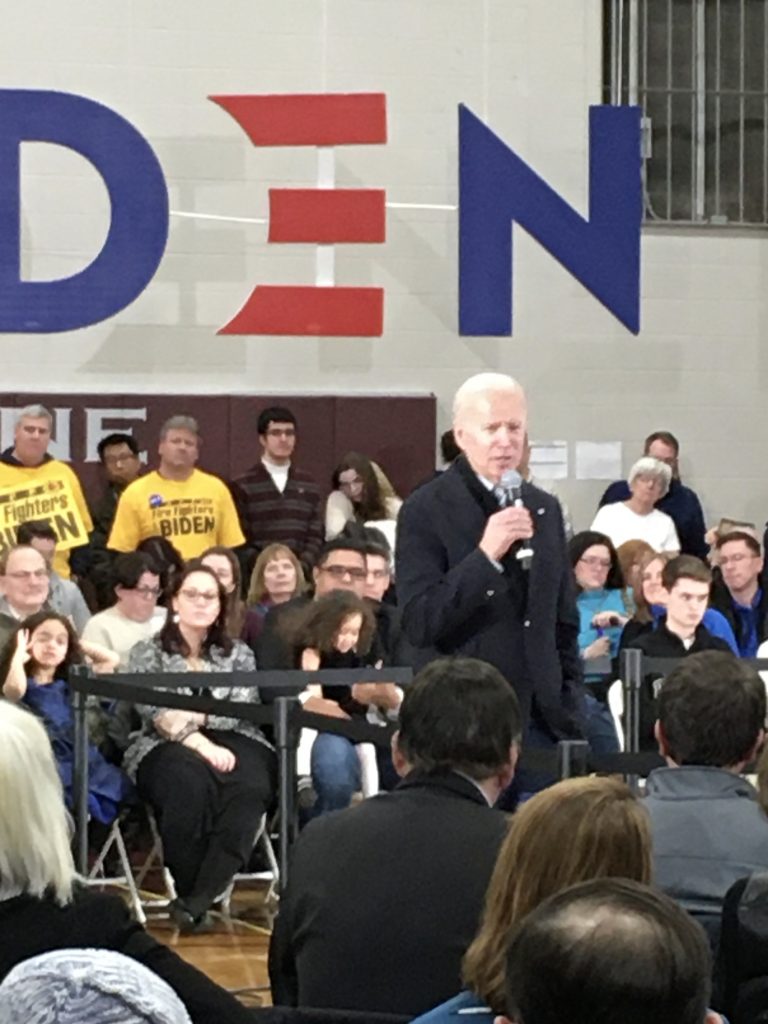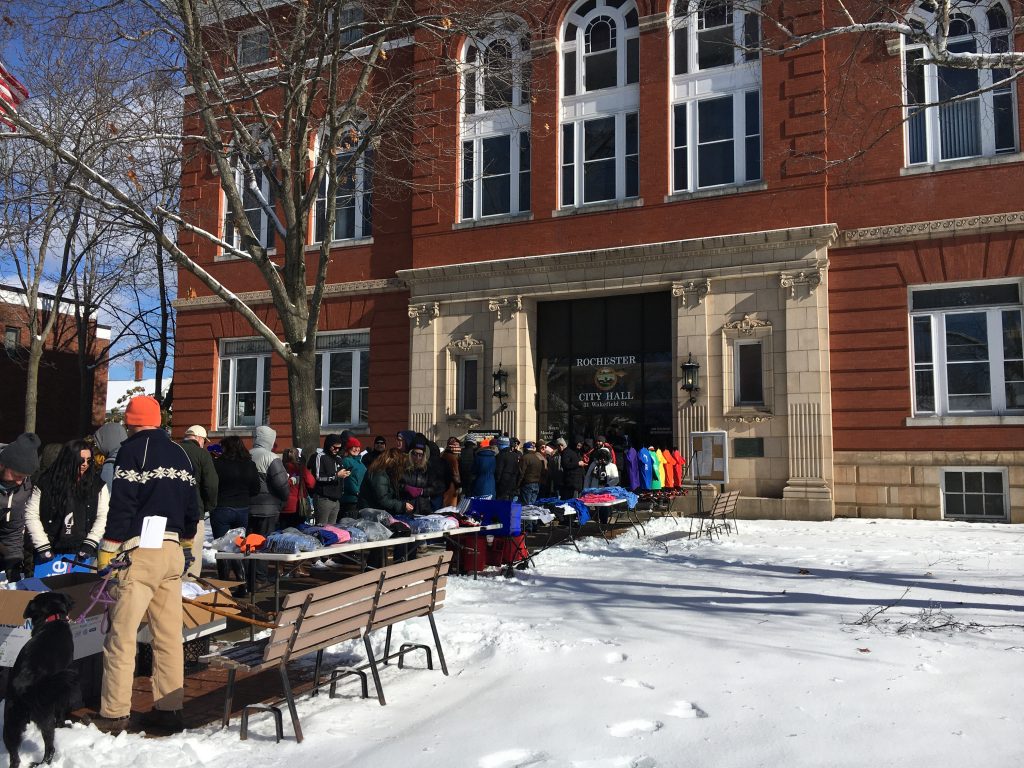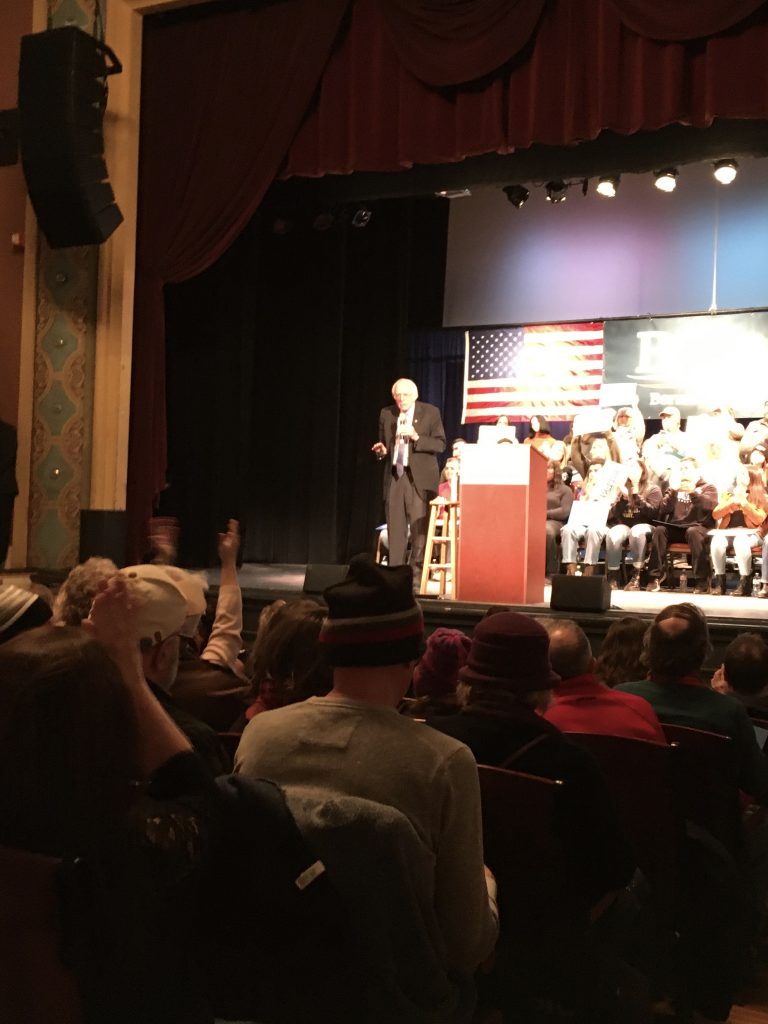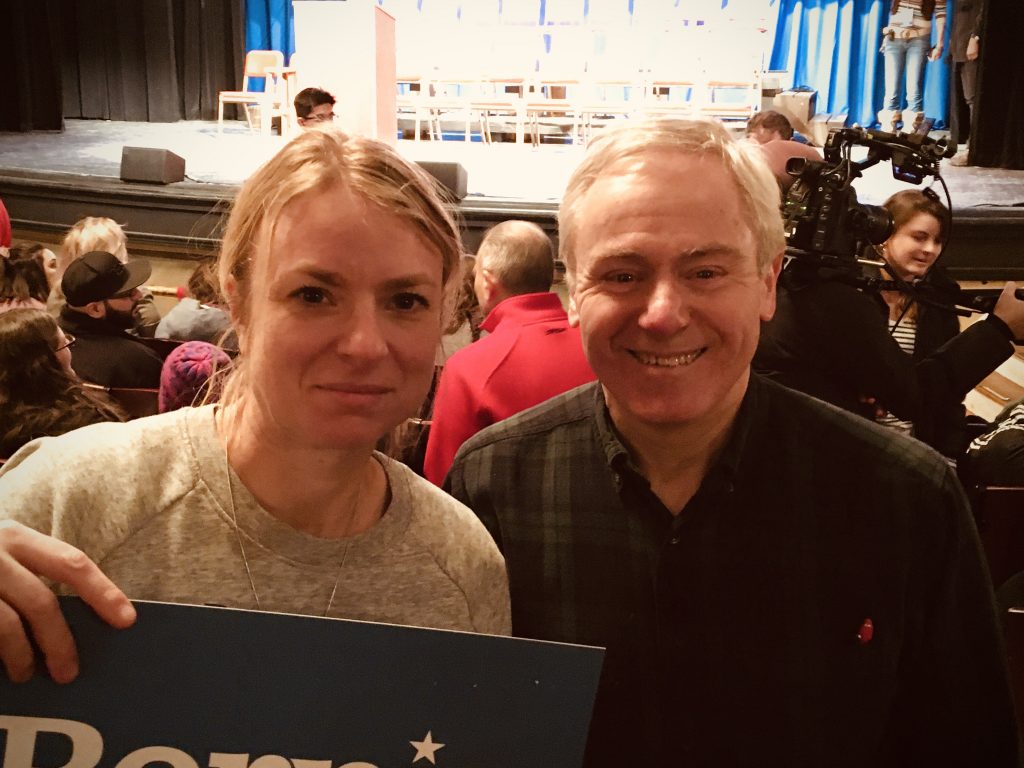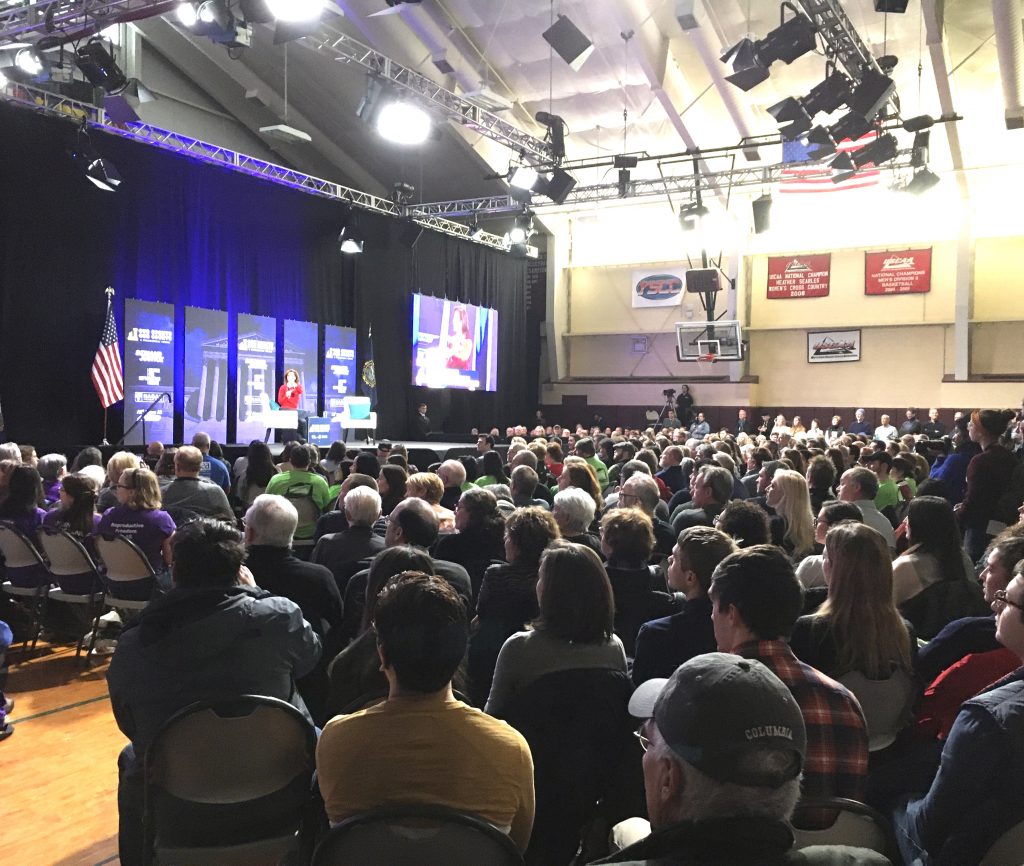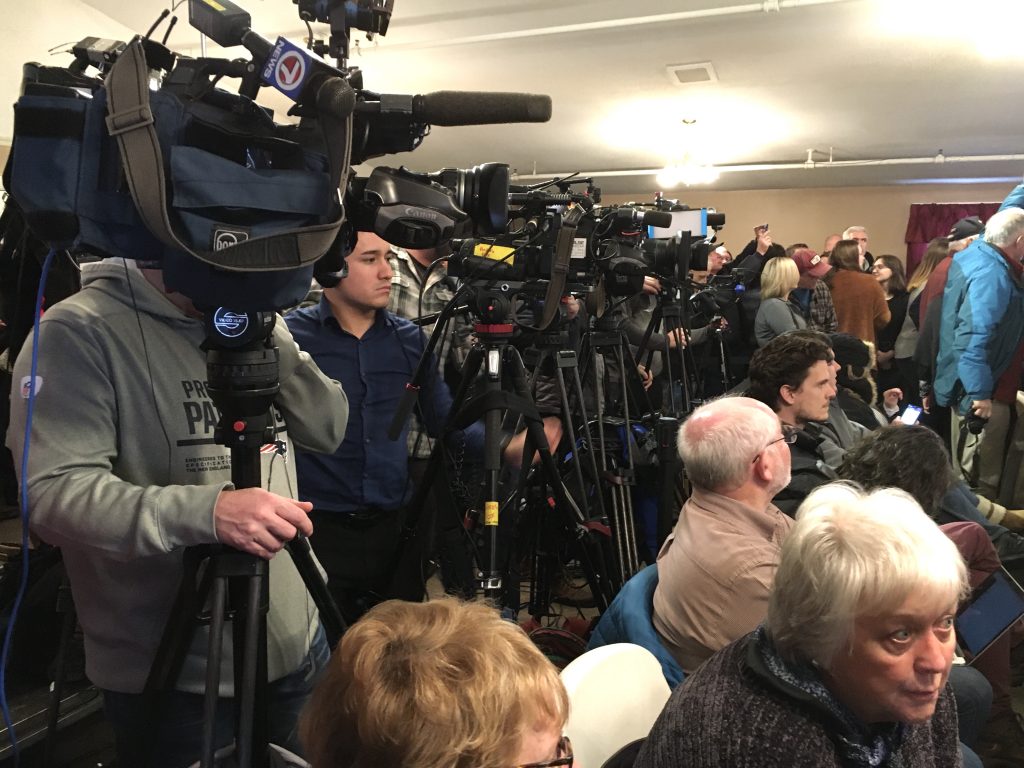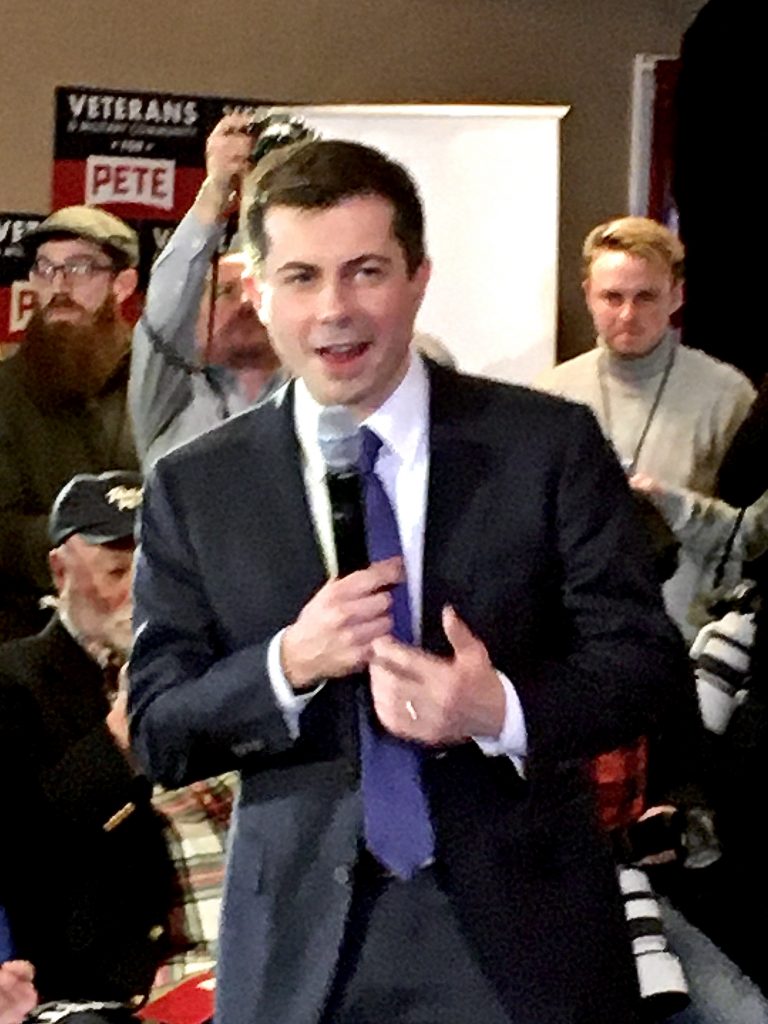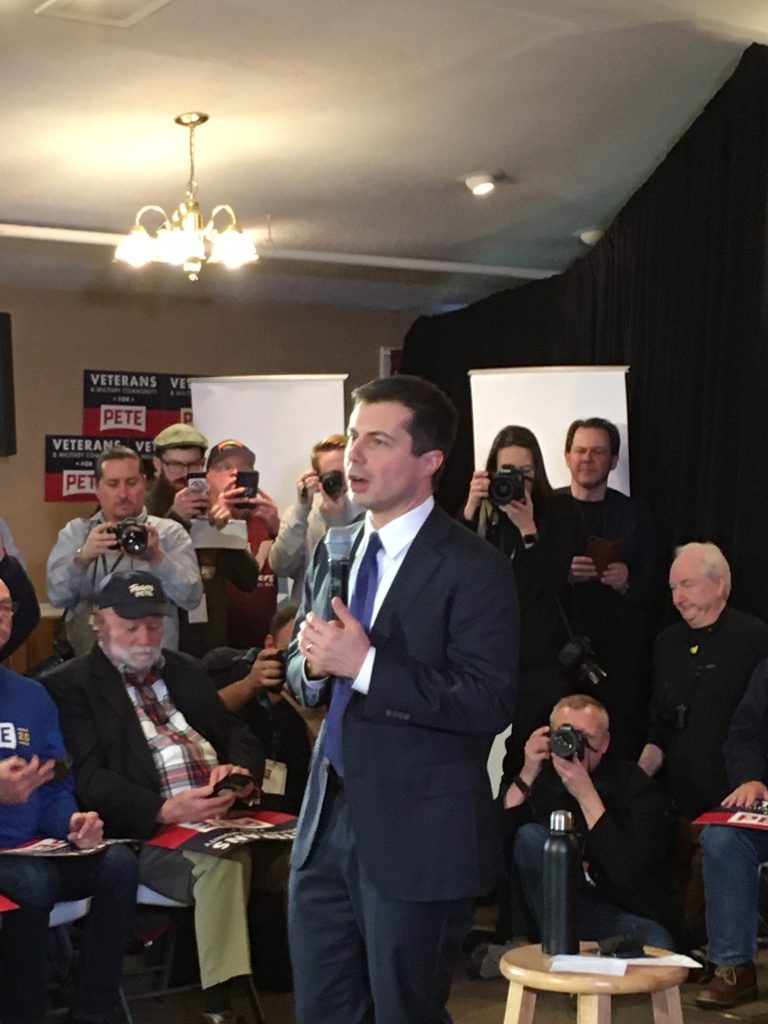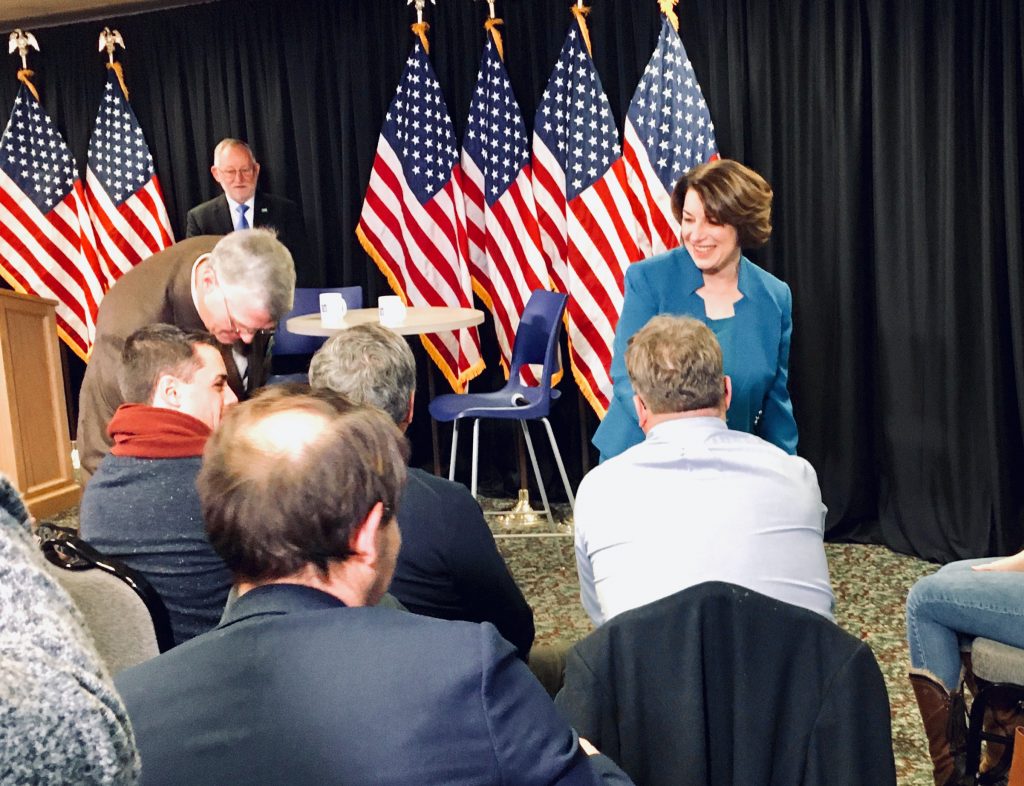Usually it happens in the summer, and it is my favorite weather: the air has been heavy with humidity, and suddenly the breeze slips off to somewhere else. There is stillness, as the birds disappear and the sky bruises toward darkness, orange or purple. You feel the gathering electricity. You are aware, with certainty, of the massive forces around you, but they have not acted. They are readying. You know there will be lightning and thunderclaps, and soon a drenching rain, but not yet. These moments are ominous; that is, filled with omens, portents. Exciting, but scary too.
And then it begins, in some tiny way: a gust of wind from a new direction, a distant rumble of thunder, or a single fat raindrop landing at your feet. It’s time. Let it come, for come it must.
That’s how I feel now, on the eve of the March 3rd primaries — Super Tuesday, so-called. The events of the past 48 hours in particular, from the time we knew the results of the South Carolina primary up to this Monday night, have been major. The last two days have, for many, rearranged a year’s worth of careful planning. But what has transpired over the past month is only prologue, only the gathering of the elemental forces. Now comes the storm.
Over-dramatic, I know. But a large question is looming. Bernie Sanders, the independent senator from Vermont, has established himself as front runner to be the Democratic nominee for president. He did this not only by essentially winning the first three contests – Iowa, New Hampshire, Nevada – but by raising $46 million in February, on top of some $132 million raised from 2019 through January 2020, enabling him to build the strongest nationwide network of local offices.
The commitment of Sanders’s followers and the breadth of the Democratic field, up until two days ago, raised the possibility that Bernie could replicate Donald Trump’s run to the Republican nomination in 2016, when Trump’s mainstream competitors split their support in an ultimately futile quest to be the last opponent standing against him. By the time that happened, it was too late.
Hence the significance of the last two days. South Carolina is only a single medium-sized state, and one uniquely favorable to Joe Biden at that, with a population heavily African-American, older than the average state, and moderate to conservative on the Democratic spectrum. But Biden’s big win there was a tipping point; it led his mainstream competitors Pete Buttigieg and Amy Klobuchar not merely to withdraw but to endorse him. This in turn restored Biden to his pre-primaries position as leading traditional Democrat. It should also permit clearer comparison of the respective positions of the remaining candidates.
And only now comes the delegate deluge. Just 155 delegates have been chosen. Tomorrow, 1,357 pledged delegates will be chosen (once all the counting is done). By the end of April, almost all the rest will be awarded. A first-ballot win requires 1,991 pledged delegates.
Time now, therefore, to look at numbers. The first fact is surprising: withdrawal of candidates Buttigieg and Klobuchar (and Tom Steyer, and Andrew Yang) has reduced the likelihood that any candidate will achieve a first-ballot majority of pledged delegates. How can this be? Fewer candidates should mean that one of the survivors will win a majority.
The answer is that the Democrats in their wisdom decreed a 15% threshold for gaining delegates: if a candidate fails to get at least 15% of the vote (statewide or in a particular district), the candidate gets no delegates. With more candidates, there was a better chance that only one or two would clear the 15% hurdle. Now with just four major candidates (Sanders, Biden, Elizabeth Warren and Michael Bloomberg) chances are better that three or all four could exceed 15% and win bunches of delegates. For example, in California, the largest prize by far, guesstimates show both Warren (17%) and Bloomberg (15%) now winning delegates, where they were projected to fall just short prior to the narrowing of the field.
Over the next two months, unless Warren or Bloomberg, or both, drop out, they are likely to accumulate over 300 delegates between them. Neither seems remotely inclined to withdraw. Warren has been successful at fund-raising thus far, and Bloomberg is just warming up his checkbook. Certainly that could change. Bloomberg is a practical businessman and if he became convinced that his efforts were hopeless and were promoting a Sanders victory, he probably would withdraw; he clearly prefers Biden to Sanders. But he may well come out of Super Tuesday with more delegates at least than Warren and be encouraged enough to continue.
Warren’s desires are less clear. If she is not the nominee, does she care whether it’s Sanders or Biden? Her healthcare plan aligns with that of Sanders, as does much of her rhetoric, and she has not much attacked Sanders in debates. But if she is thinking she might be a compromise choice between Sanders and Biden, uniting the two wings, that seems far-fetched. For the time being she may believe she will pick up most Klobuchar supporters as the ‘women’s vote.’ I do not believe there is such a thing as the women’s vote, as a national block.
Time for predictions. All four candidates will get delegates out of California. Statewide popular vote (which will take several days to count, with all those mailed-in ballots): Sanders 37%, Biden 24%, and the other two just over 15% each. More importantly, Sanders will get fewer than 100 delegates more than Biden, from California. That lead will not be insurmountable.
The other big prize Tuesday is Texas. Call that one even, at 30% each for Biden and Sanders, Bloomberg crossing the 15% hurdle by a bit but Warren just below it.
Overall for Tuesday, Sanders will top 500 delegates by a bit, with Biden around 420-450, Bloomberg 200 and Warren 170.
Looking ahead, on March 17 Florida, Illinois and Ohio vote; Biden should narrowly win the day boosted by a strong Florida plurality. And on April 28, New York, Pennsylvania, Maryland, Connecticut, Rhode Island and Delaware vote — it is possible that Biden could sweep them. And he probably will have to.
All this would be quite entertaining if it weren’t so important. I know the country has been polarized, pretty evenly, for years. I regularly watch both MSNBC and Fox News; I read the New York Times and the Wall Street Journal (and the Washington Examiner, further right) . The two broad groups perceive utterly different realities, as delivered via TV, talk radio and social media, and they rarely talk with each other. But what worries me even more is the growing gulf between those (relatively) supportive of the America we live in, with all its faults, and those who feel angry, abandoned, convinced the system is fundamentally against them. This is not a liberal-conservative split. The disaffecteds elected Trump in 2016 to break the furniture. Not satisfied with the results, many of them now can be found at Sanders rallies.
In 2016 many Democrats were pleased when the Republicans nominated Trump; surely this buffoon could not be elected. Currently, many Republicans are gleeful over the rise of Bernie Sanders; America would never elect a socialist!
Good people in both parties better take a look at the mob that is forming, some from the ranks of their own party, some of the other — a mob that listens only to promises and accusations, that demands to be fed and funded and will not be appeased. Summer is coming, and a storm.



